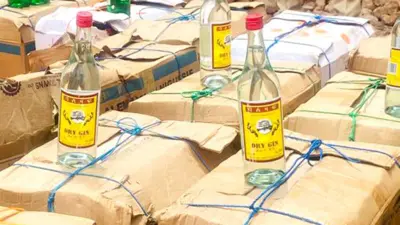We've updated our Privacy and Cookies Policy
We've made some important changes to our Privacy and Cookies Policy and we want you to know what this means for you and your data.
Farming income in NI falls by 25%
- Author, Conor Macauley
- Role, ¬ιΕΙΙΌΆχ Ή“≥»κΩΎ NI Agriculture & Environment Correspondent
The money produced by farming in Northern Ireland is down by 25% on last year, mostly due to falling prices.
Total income fell from ¬Θ386m in 2018 to ¬Θ290m in 2019, according to provisional figures published by government.
Average farm incomes are expected to be down by 14% from an average of ¬Θ28,612 in 2018/19 to ¬Θ24,679 in 2019/20.
Agriculture Minister Edwin Poots told an assembly committee he wanted to see more fairness in the supply chain so farmers were rewarded for their work.
"If supermarkets and processors are gobbling up all of the profits in the food industry, that is to the detriment of the wider public," he said.
"I will be challenging on that particular subject."
Incomes in the cereals, dairy, cattle and sheep sectors are all expected to fall.
Image source, Getty Images
Income from pigs is expected to rise because of better prices for pig meat in the same period.
Poultry prices were slightly up, though the overall output of the sector was down.
Dairying was the biggest sector, contributing ¬Θ654m of gross output in 2019.
During 2018-19 more milk was produced, but the average annual price was down 6% to 27.1p per litre.
Fewer cattle were slaughtered last year and beef prices were down 6.6%.
The same pattern was reflected in the sheep sector, with fewer animals sent for slaughter and prices down 9% for those that were.
Ulster Farmers' Union president Ivor Ferguson said the figures "stress the unsustainable financial situation that farm families across Northern Ireland endured last year".
He said farm income across virtually all commodities experienced a substantial drop.
"It is a clear indicator that the uncertainty farmers have been dealing with combined with increasing machinery, feed and fertiliser prices over the last few years is beginning to seriously impact their farming businesses."
Top Stories
More to explore
Most read
Content is not available








